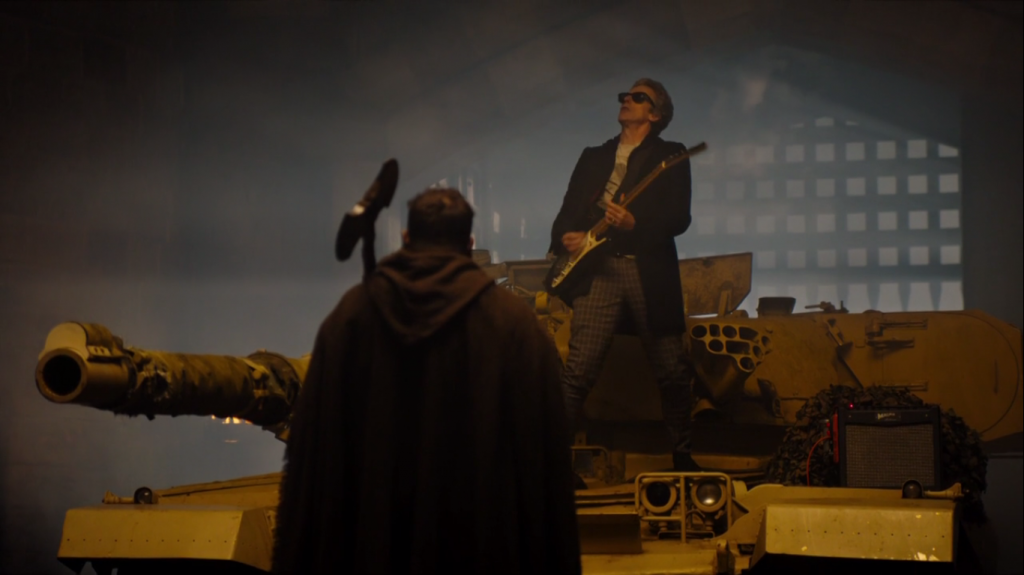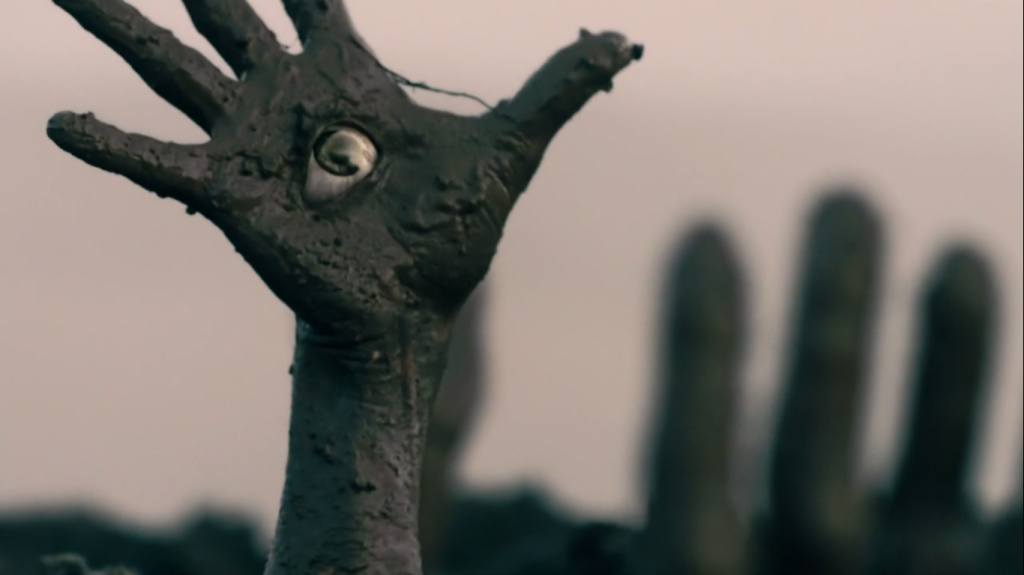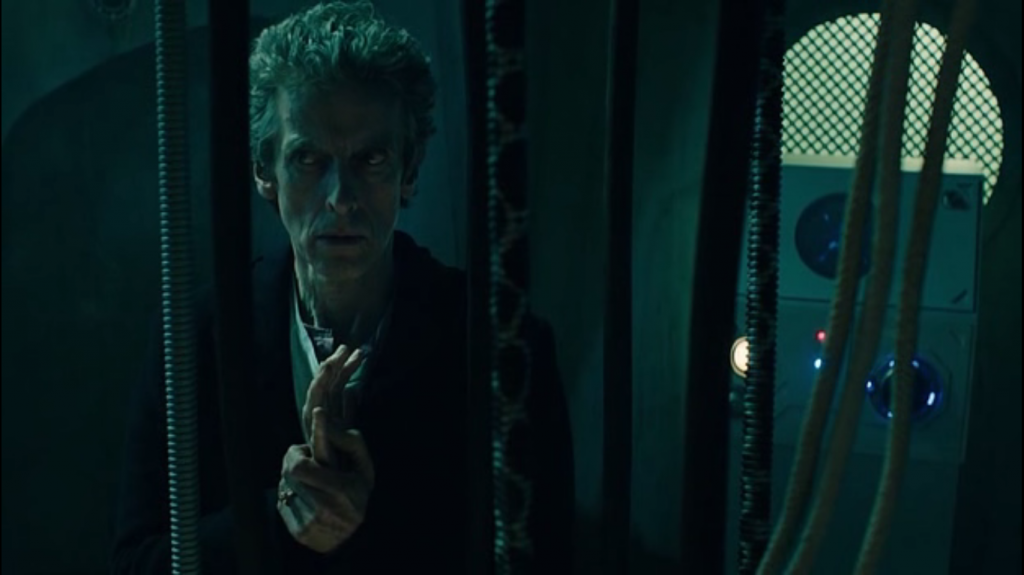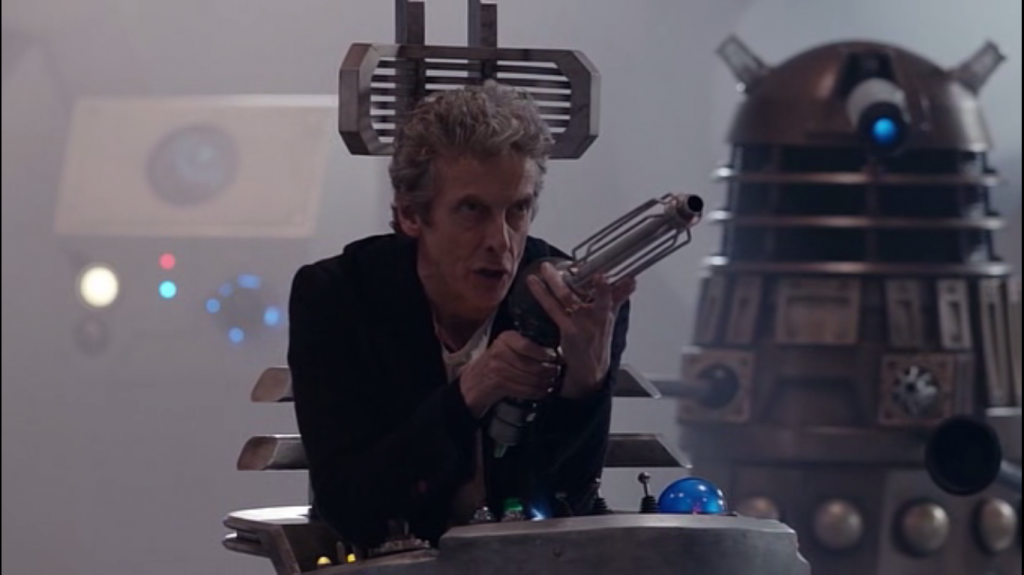At the dawn of nu-Who, when Russell T. Davies was still the head writer, Steven Moffat’s name under the “written by” credit felt like a special occasion. If RTD was your reliable father, Moffat was your fun uncle who maybe hit the sauce a little too hard at holiday parties. In small doses, Moffat’s concept driven, spectacle heavy approach to the series provided a necessary counterpart to RTD’s occasionally staid, repetitive structure. Episodes like “Blink” and “Silence In The Library” felt so revelatory precisely because they always came sandwiched between more standard fare. Ever since he’s taken the show over, however, things have felt exactly as they might if your drunk uncle had to actually raise you on a regular basis, not just sit you on his lap and recount slurred, but stirring tales of bullshit.
The ninth season of Doctor Who‘s modern incarnation opens, not unlike it’s sixth, with a bombastic two-parter stuffed to the gills with cool moments and half-baked ideas that never quite coalesce into anything more substantial than the sum of its parts. The Moffat Era continues its obsession with cinematic visuals, sweeping pulp stylistics, and a specious understanding of logical story mechanics. It’s not that the show isn’t entertaining anymore—quite the opposite, in fact—Under Hettie MacDonald’s inspired direction and enlivened by a very game core cast, these two episodes were more than enough to convince even the most jaded Whovian to stick around for another year. It’s just that the level of engagement has irreparably been altered, and I can’t help but mourn the loss of a much deeper level of fandom.
Simply put, the cost of making a Doctor Who that’s this shiny and epic and filled with turns is that nothing matters. Everything is cranked to 11, so the softer, more resonant beats that have to occur at say, 4 or 5, are drowned out by sensationalist reverb.
Once again, the season seems to be built around one big mystery that, if history has taught us anything, will be explained away with a hand wave and little to no satisfying conclusion. In season six, it was around The Doctor’s death. Season seven was about his name (I think?). Season eight was about whether or not The Doctor was an asshole (SPOILER: Yes). This year seems to be a confluence of six and eight, furthering the rabbit hole of The Doctor’s relative dickishness, but wrapped around the faux-caper of his own impending demise.
Basically, Dalek inventor Davros, one of The Doctor’s many nemeses, is dying, and on his deathbed, he remembers something about The Doctor. Something The Doctor is running from. He goes into self destructive hiding, only to be sought out by his companion Clara and Missy, the latest incarnation of his rival The Master. I won’t spoil the nature of this memory, because it’s arguably the best thing this show has accomplished since the anniversary special, but it remains indicative of the series’ core issues.
Both episodes are unquestionably cool, from Missy’s entertaining rapport with Clara to the second episode’s striking Bond homage teaser act, but when we’re expecting to be shocked and appalled at any number of beguiling twists, we know from experience that none of the knotty corners The Doctor is painted into are real. The show, in recent years, has gone out of its way to dilute tension, desensitize death and otherwise devolve the basic principles on which drama is built upon.
The show is plagued by a frustrating impermanence. Since everything can be glossed over, little carries weight. The frequency with which big questions go unanswered or conveniently (and often condescendingly) hand waved is disconcerting. There’s talking down to your audience and there’s telling them to go fuck themselves every time they get fed up with your shit. It’s a science fiction show, so there’s nothing inherently wrong with bending genre convention to craft palatable cliffhangers, but when nothing ever really matters, what is the point of anything? Last season’s frustrating death of series favorite Danny Pink felt like a slap in the face at the time, but there was something noble in at least aiming for some sense of consequence, even if I’m now convinced he’s going to magically spring back to life at any moment.
Moffat is entirely too concerned with huge moments and dope reveals so that stitching everything else together just doesn’t appeal to him. He’s more obsessed with making the show like Star Wars than JJ Abrams was with Star Trek, which, by itself, is not the worst offense, but when that adherence to a widescreen scale comes at the expense of simple dramaturgy, you’re in trouble. Every episode’s plot looks like a map of impressive ideas with no roads to tether them together. Just as Moffat once spiced up the monotony of the RTD Era, perhaps he could use a staff writer who provides a respite from his constant Tumblr-bait bullshit.
If you’re wondering why you should stick around at all, it’s for the cast. Admittedly, Jenna Coleman doesn’t have much direction this go around, but she inhabits Clara with the same charisma and verve we’ve come to love. Missy (Michelle Gomez) and The Doctor are the real attraction here. Gomez and Capaldi have such an interesting chemistry, and their new found dynamic—as estranged frienemies—works a lot better than it really has any right to. Capaldi’s take on the titular hero continues to amaze, as well. The Doctor is like Superman at his best, Capaldi’s been more Rick Sanchez than Kal-El, making the struggle to always do the right thing one of the most compelling performances in the series’ history. He’s got a little of everything that made you love the last three Doctors, but he puts it together in a package wrapped in gravitas that elevates the show’s (ample) weaker moments.
Whether Moffat’s writing will rise to the high bar Capaldi’s set as the series’ star remains to be seen, but thus far, The Twelfth Doctor has made holding out hope seem a more noble pass time than calling it quits.
Doctor Who airs Saturdays @ 9:00pm EST on BBC America.





